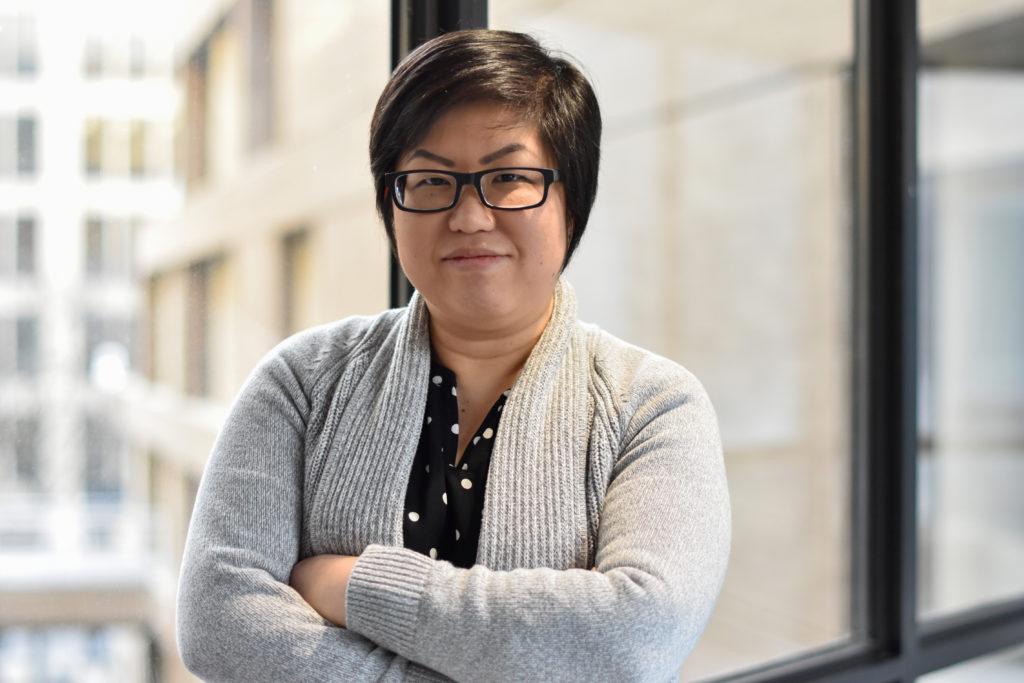The Women’s, Gender and Sexuality Studies program is piloting a new capstone seminar for graduate students’ senior theses discussions this semester.
The seminar allows graduate students to jointly develop their theses through dialogue and peer review with other graduate students working on their final projects, faculty said. Kavita Daiya, the director of the program, said the seminar takes graduate students out of the isolation that students usually face in writing their theses and fosters a greater sense of community among the students.
Daiya said she came up with the idea for the course with Cynthia Deitch and Eiko Strader, two other professors in the program. She said the three of them began talking last year about how to improve the program’s graduate student experience to combat seclusion.
“They’re largely working on their own in the library all by themselves or in the attic and doing this research in isolation,” she said.
Daiya said faculty garnered student feedback last spring informally through word of mouth and formally through a survey, which led to faculty discussions about how to reinvent the curriculum.
“We did a survey of the graduate students, and we learned about what was working for them, what they saw as the strength of their experience here at GW,” Daiya said. “Then we asked them to share what they found challenging.”
She said students typically write their theses and receive feedback from a single professor, which limits their opportunity for feedback and discussion, but she wanted students to be able to collaborate so they could reap the benefits of other perspectives on their work.
“Instead of being isolated in your last semester like that, we thought it would be really great to bring everyone together who was working on these theses into a seminar,” she said.
Faculty said nine students are currently enrolled in the course, and 14 are expected to enroll next year. There is no limit on the number of graduate students who can enter the program, professors said.
Daiya said faculty plan to pilot the capstone this year by introducing tentative changes for this semester only, and if students enjoy the experience and Strader reports it met its goal to improve students’ writing, faculty will offer the program every year.
She said she has met with a few students in the capstone seminar, asking for reactions, and heard positive feedback about the changed curriculum.
“They’ve all had really positive things to say about it,” she said. “They are enjoying the fact that it is providing a writing community.”
Strader, the professor overseeing the course, said she pitched the idea last year with some faculty members on a curriculum review committee looking to improve the capstone program.
She said she determined that the graduate students needed a more creative experience by brainstorming with others to further their intellectual goals. By talking to their peers regularly, they can receive suggestions about reading and research that would benefit their theses, Strader said.
“The goal is learning how to do research on your own and also how to be in conversation with your peers,” she said.
Strader said she agreed to design and teach the seminar because she wanted to develop a more systematic approach for graduate students to complete capstone assignments than working independently. She said these individual research projects are supposed to reflect everything they have learned in all the classes they have taken so far, including feminist theory and research issues.
“They need to bring all those things together and develop their own research paper,” Strader said.
Strader said that based on the feedback already obtained from graduate students and other professors who the students in the seminar consult with, the program will likely be formally incorporated into the curriculum beginning next year.
Joseanne Lopez, a second-year graduate student in the course, said the seminar has encouraged a more rigid timeline for completing her work by requiring certain deadlines be met so she can collaborate with peers. She said the feedback from her peers has been a “great resource” that has helped ensure her research “is credible and of high quality.”
“The capstone seminar has provided me with an insightful and forward-looking approach to not only constructing my research paper but also in developing an in-depth meaning to and understanding of my research goals,” she said.
Sarah-Anne Gresham, another student in the course, said the seminar complemented her writing strategy during the “most stressful semester of a master’s program” by including other perspectives in her writing.
“It is providing the structure needed to complete my research on time, and it is also helping me to become more disciplined and strategic in my approach to writing,” she said.







